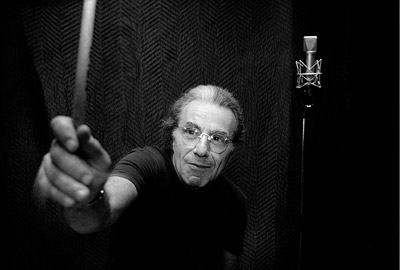Barry Altschul has been on my mind a lot lately- this performance kind of got stuck in my head, plus I was listening to a lot of Paul Bley before my recording session last week- he really puts you in a mindset to be reaching for pure music, as opposed to that of delivering an "amazing" performance; so Altschul (along with Paul Motian and Billy Elgart) came up a lot- particularly on the great Ballads album.
Anyhow, here are a few excerpts from a 2010 Altschul interview from Burning Ambulance, a jazz/arts blog I haven't read before. Like most interviews it's more about current events, career and listener issues, than about things drummers/artists want to know, but there are some interesting things.
Here, you can re-listen to these great clips in another tab while you read:
PIGEONHOLED
...a lot of my recording career has been what we’ll call the avant-garde. Yet a lot of my professional career has been fairly equal between playing with avant-garde people and playing with inside people, but my reputation is pretty much avant-garde. I remember once going out with Art Pepper, and we were on the road and one of the newspapers said, “The surprise of the evening was the avant-gardist Barry Altschul swinging.…”
Q: Did you ever feel any sense of regret or frustration about this idea that you had been painted into a corner?
BA: I feel frustration about it because I think that it has affected my work—not my playing but my ability to get gigs. I think a lot of people when they think of me, think of me a certain way and feel that they can’t think of me another way.
[...] I do know that certain musicians who are close friends of mine have told me that other people have asked them about my abilities. “Can he play time more than three bars in a row?” Or, “Can he really swing?” There have been some of those questions asked to friends of mine who came back to me and told me that.
FREE vs. BOP
I remember one time, playing at Slug’s with Paul Bley. I’m not going to mention names, but one of the more established trumpet players almost got physically violent [when he heard] the music that was being played. He was very upset that we could do that to music.
...the more inside musicians felt that the players that were playing more out had to establish themselves first. They felt, I think, that you had to prove yourself that you can play a certain way before you took the liberties of extending.
Continues after the break...
Q: Do you personally agree with that?
BA: [...] I consider myself a jazz musician, and then I also consider myself being able to play free, so how I combine the two into one concept, I suppose, would be that to me, playing free is a matter of choices. The more choices you have, the freer you are. So I feel myself, as a free musician, I want to have the choice to be able to play any style at any time within the context of the music, so [...] to be truly free, you need the choices. And [musicians who] create their own style or their own sound or their own concept, those people do what they do very well, but to me—and this is just to me—aren’t truly free. They’re locked into their own concepts.
[...] there still is a split. I mean there’s a whole circuit, let’s say, of alternative music, festivals and clubs and so on, where people who just play that music play and whether they can actually play a bebop gig or not, I don’t know, but what they do play is very good, very interesting and emotionally moving.… But I do find that there is a split with certain people that don’t—Well, it works both ways; the put-downs work both ways. There are some people that are just playing out that put down people who are just playing in, and there’s people who are just playing in that put down people who are just playing out. I don’t think attitudes have changed that much to those people who are extreme like that. But in the overall musical context, I’m finding that more inside people are using outside vocabulary in their music, as well as more outside people, as far as the tension and release is concerned, are playing more melodic and more swinging.
TENSION AND RELEASE:
I think that tension and release is important, and I know with some of the more avant-garde groups I’ve been playing with recently, like the Steve Swell-Gebhard Ullmann band or the FAB trio with Billy Bang and Joe Fonda and myself, the audiences are there, they’re happening when we give them that tension and release. They’re more open to the tension once they’ve felt the release. [Laughs]
[...] Because even for the players, for me, it’s difficult to listen to all avant-garde without the release. And I’m not talking about the release necessarily being something that’s harmonically and melodically accepted and swinging, but there’s a release there, and audiences, once they can feel that, they start listening in a different way…Art Blakey once said to me, “If you ever notice, classical orchestras, when they come onstage, people in the audience are already paying attention, even while they’re tuning up.” And he says, “Well, that’s ’cause they wear tuxedos!” [Laughs] And you know, so all of a sudden, a bunch of tuxedos come onstage and you start looking at them, and in that, you’re paying more attention. And so I think it’s the same thing audio-wise: If you give them some release, they’ll listen to the tension more astutely.


No comments:
Post a Comment